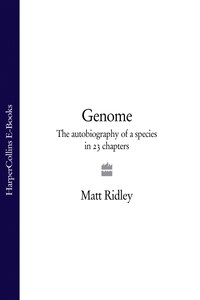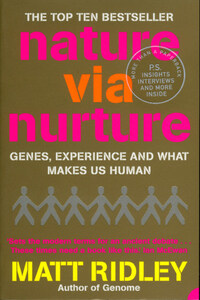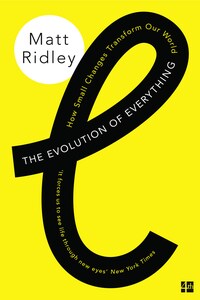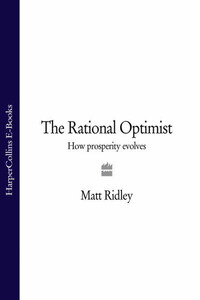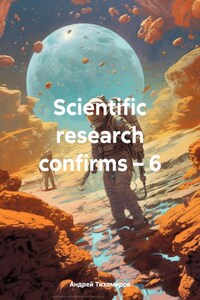William Collins
An imprint of HarperCollinsPublishers Ltd.
1 London Bridge Street
London SE1 9GF
www.harpercollins.co.uk
This edition published by Harper Perennial 2004
First published in Great Britain in 1999 by Fourth Estate Limited
Copyright © Matt Ridley 1999
Matt Ridley asserts the moral right to be identified as the author of this work.
A catalogue record for this book is available from the British Library.
The author is grateful to the following publishers for permission to reprint brief extracts: Harvard University Press for four extracts from Nancy Wexler’s article in The code of codes, edited by D. Kevles and R. Hood (pp. 62 – 9); Aurum Press for an extract from The gene hunters by William Cookson (p. 78); Macmillan Press for extracts from Philosophical essays by A. J. Ayer (p. 338) and What remains to be discovered by J. Maddox (p. 194); W. H. Freeman for extracts from Narrow roads of gene land by W. D. Hamilton (p. 131); Oxford University Press for extracts from The selfish gene by Richard Dawkins (p. 122) and Fatal protein by Rosalind Ridley and Harry Baker (p. 285); Weidenfeld and Nicolson for an extract from One renegade cell by Robert Weinberg (p. 237). The author has made every effort to obtain permission for all other extracts from published work reprinted in this book.
All rights reserved under International and Pan-American Copyright Conventions. By payment of the required fees, you have been granted the non-exclusive, non-transferable right to access and read the text of this ebook on-screen. No part of this text may be reproduced, transmitted, downloaded, decompiled, reverse engineered, or stored in or introduced into any information storage and retrieval system, in any form or by any means, whether electronic or mechanical, now known or hereinafter invented, without the express written permission of HarperCollins ebooks
HarperCollinsPublishers has made every reasonable effort to ensure that any picture content and written content in this ebook has been included or removed in accordance with the contractual and technological constraints in operation at the time of publication
Source ISBN: 9781857028355
Ebook Edition © JUNE 2010 ISBN: 9780007381845 Version: 2017-04-07
‘This is a spectacular book.’ Spectator
‘This is as absorbing a read as any science-fiction novel but it is dealing with the horizon of real knowledge. Barely a page passes without a new morsel of knowledge brought with almost breathless enthusiasm from academic journals by Matt Ridley.’ Sunday Herald
‘Ridley is a raconteur, skilled at telling vivid stories of discoveries and amassing facts.’ New Scientist
‘Genome offers one of the most perceptive and lively accounts of what we are learning – and might find out in the future – about the book of man.’ Prospect
‘A lucid and exhilarating romp through our human chromosomes that lets us see how nature and nurture combine to make us human.’ James Watson, author of The Double Helix
‘Genome, like the best of popular science, is both an exciting scientific exploration and a sheer pleasure to read.’ Yorkshire Post
‘Readers will find this book difficult to put down.’ New Humanist
Books of the Year 1999
‘Matt Ridley’s Genome lives up to the high standard of The Red Queen and The Origins of Virtue. This makes it very good indeed, for Ridley is a leader among today’s highly successful scientist authors. Intelligence, Disease, Immortality, Eugenics…23 topics of particular human interest are tied to our 23 chromosomes. The 23 chapters brim with Ridley’s customary stylish wit and cool insouciance. The book appears appropriately in the closing year of Watson and Crick’s century, which is about to culminate in the finished Human Genome Project.’ Richard Dawkins, Guardian
‘Matt Ridley’s Genome is as elegant, as unpatronising and lucid as a layman could desire. Blessed are the users of plain language, for they shall be read.’ Miranda Seymour, Independent
‘Genome makes accessible a subject that is far too important to be left to the boffins and the doctors. It’s elegant, lucid, formidably well informed and, above all, human.’ Jane Ridley, Spectator
The human genome – the complete set of human genes – comes packaged in twenty-three separate pairs of chromosomes. Of these, twenty-two pairs are numbered in approximate order of size, from the largest (number 1) to the smallest (number 22), while the remaining pair consists of the sex chromosomes: two large X chromosomes in women, one X and one small Y in men. In size, the X comes between chromosomes 7 and 8, whereas the Y is the smallest.
